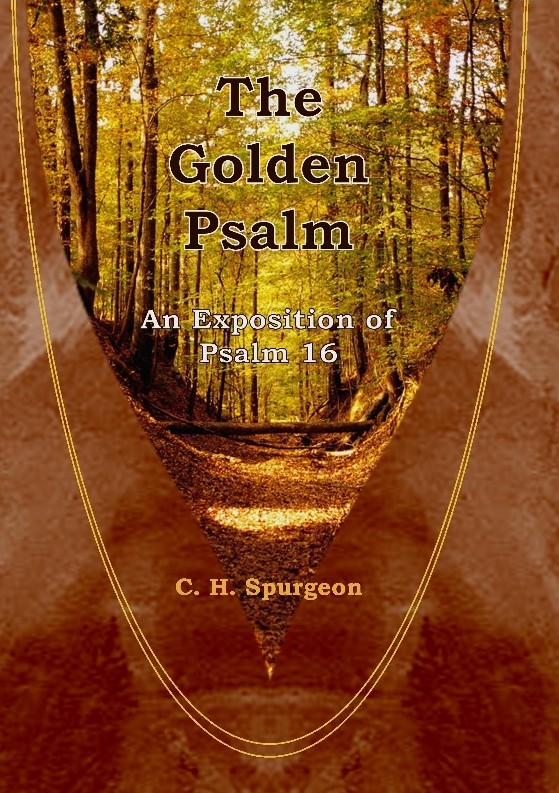
The Golden Psalm - An Exposition of Psalm 16
By Charles Spurgeon
Extract
The Golden Psalm – An Exposition of Psalm 16
C. H. Spurgeon
Title. Michtam of David. This is usually understood to mean The Golden Psalm, and such a title is most appropriate, for the matter is as the most fine gold. Ainsworth calls it “David’s jewel, or notable song.” Dr. Hawker, who is always alive to passages full of savour, devoutly cries, “Some have rendered it precious, others golden, and others, precious jewel; and as the Holy Ghost, by the apostles Peter and Paul, hath shown us that it is all about the Lord Jesus Christ, what is here said of him is precious, is golden, is a jewel indeed!” We have not met with the term Michtam before, but if spared to write upon Psalms 56, 57, 58, 59, and 60, we shall see it again, and shall observe that like the present these psalms, although they begin with prayer, and imply trouble, abound in holy confidence and close with songs of assurance as to ultimate safety and joy. Dr. Alexander, whose notes are peculiarly valuable, thinks that the word is most probably a simple derivative of a word signifying to hide, and signifies a secret or mystery, and indicates the depth of doctrinal and spiritual import in these sacred compositions. If this be the true interpretation it well accords with the other, and when the two are put together, they make up a name which every reader will remember, and which will bring the precious subject at once to mind. The Psalm of the Precious Secret.
Subject. We are not left to human interpreters for the key to this golden mystery, for, speaking by the Holy Ghost, Peter tells us, “David speaketh concerning Him” (Acts 2:25). Further on in his memorable sermon he said, “Men and brethren, let me freely speak unto you of the patriarch David, that he is both dead and buried, and his sepulchre is with us unto this day. Therefore being a prophet, and knowing that God had sworn with an oath to him, that of the fruit of his loins, according to the flesh, he would raise up Christ to sit on his throne; he seeing this before spake of the resurrection of Christ, that his soul was not left in hell, neither his flesh did see corruption” (Acts 2:29-31). Nor is this our only guide, for the apostle Paul, led by the same infallible inspiration, quotes from this psalm, and testifies that David wrote of the man through whom is …